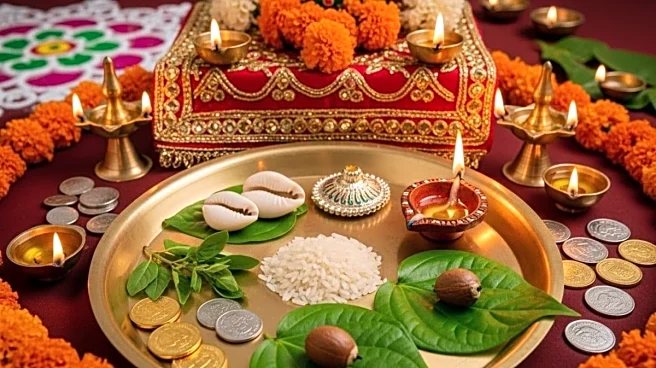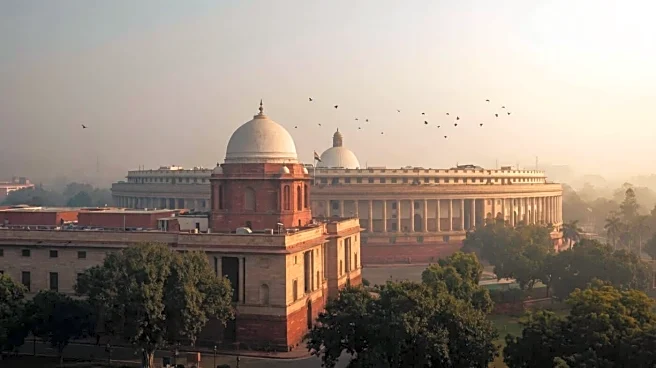The festival of lights begins with Dhanteras, a day devoted to wealth, health, and new beginnings. This year, Dhanteras 2025 carries special significance. Three planets sun, Mars, and Mercury, align in Libra,
a sign ruled by Venus, the planet of balance, beauty, and prosperity. Have you ever wondered why some rituals feel more powerful than others?
What this really means is that the energy on Dhanteras 2025 will be uniquely balanced. Libra’s influence encourages harmony between effort and reward, material success and spiritual growth. Performing the Dhanteras puja with awareness and intention can therefore align your personal vibrations with the cosmic rhythm of prosperity.
According to astrologer Sidhharrth S Kumaar, Chief Astrologer at NumroVani, this alignment marks a powerful time for initiating rituals that invite abundance and harmony into one’s life. Every element in the pooja thali has symbolic meaning. Preparing this thali opens your home to divine grace, grounding your desires in purity and purpose.
Below are the essential items your Dhanteras puja thali must include this year, along with the meaning behind each.
1. Seven Grains (Saptadhanya)
Saptadhanya is the sacred mix of seven grains, rice, wheat, barley, maize, sesame, black gram, and chickpeas. In astrology and Vedic tradition, these grains symbolise nourishment, growth, and holistic abundance. Each represents a distinct aspect of sustenance. Rice for purity, wheat for health, barley for prosperity, maize for energy, sesame for spiritual merit, black gram for strength, and chickpeas for vitality.
Placing these seven grains in your pooja thali signifies that all dimensions of your life—material, emotional, and spiritual are nurtured and balanced. It is like inviting the energy of perpetual renewal into your home.
The grains also act as energetic stabilisers, ensuring steady growth and protection against scarcity. As Sidhharrth S Kumaar explains, “Saptadhanya creates a field of vibration that supports sustenance, fulfilment, and continued advancement.” It is believed that those who offer these grains on Dhanteras receive the blessings of continuous prosperity and unbroken supply in their lives.
2. Cowrie Shells and Gomati Chakra
Cowrie shells once functioned as currency in ancient India and Africa. Even today, they are seen as symbols of prosperity, wealth, and luck. When placed in the pooja thali, they invite financial opportunities and open the flow of abundance into one’s household.
Gomati Chakras, small white discs found in the Gomati River in Dwarka, hold spiritual significance. Associated with Goddess Lakshmi, they symbolise protection and continuity of fortune. Together, the cowrie and the Gomati Chakra represent the dual forces of gain and preservation, earning wealth and protecting it.
Including these sacred elements in your pooja thali is thought to strengthen your financial stability and guard against unexpected losses. Their circular form symbolises the ongoing cycle of earning, saving, and growing wealth responsibly.
Astrologically, they help stabilise the planetary influences of Venus and Mercury both of which govern financial flow, trade, and business growth. The act of offering them in prayer grounds your wealth in divine consciousness, preventing excess or imbalance.
3. Tulsi Leaf
Tulsi, or holy basil, is considered sacred in almost every Hindu ritual. It represents purity, healing, and spiritual awakening. When placed in your Dhanteras pooja thali, the Tulsi leaf connects the ritual to sattvik (pure) vibrations and moral consciousness.
Sidhharrth S Kumaar explains that “Tulsi harmonises spiritual energy with material pursuit. It ensures that prosperity enters the home with integrity and divine alignment.” In other words, it protects wealth from becoming a source of greed or restlessness.
The Tulsi leaf purifies both the surroundings and the intention behind your offering. It enhances the sanctity of the ritual, ensuring that the wealth invited is not merely financial but holistic touching health, peace, and inner strength.
4. Betel Leaves and Betel Nuts
Betel leaves are often used to mark auspicious beginnings. Their freshness signifies vitality and rejuvenation, while betel nuts denote strength, stability, and endurance. When used together in the Dhanteras pooja, they balance the masculine and feminine energies within the ritual space.
The leaf represents fertility, creativity, and growth. The nut stands for discipline, fortitude, and continuity. Together, they bring equilibrium helping one’s efforts translate into tangible, lasting results.
Placing them on your thali is also symbolic of inviting healthy relationships and family unity. They ensure that prosperity flows in harmony with togetherness. In traditional astrology, this combination strengthens Mars (energy and action) and Venus (harmony and prosperity), bringing determination balanced with grace.
5. Coins or Currency
Coins or crisp currency notes are the most direct representation of Goddess Lakshmi’s blessings. Money, in this context, is not merely a medium of exchange but a sacred force. It stands for potential what you can create, share, and sustain.
Before placing them on the thali, devotees often apply a small mark of sandalwood paste or turmeric as a symbol of sanctity. When offered with devotion, these coins act as a magnet for abundance, attracting more opportunities for financial growth.
After the puja, it is customary to keep these coins in your wallet, locker, or business place as an anchor for Lakshmi’s energy. They serve as a reminder to use wealth wisely, to save diligently, and to circulate prosperity through generosity.
According to Sidhharrth S Kumaar, this ritual also enhances your personal connection with the financial energies governed by Mercury and Venus. It subtly realigns one’s approach to money, encouraging respect and mindfulness rather than attachment.
6. Ghee Diya (Lamp)
The ghee diya is perhaps the most significant item on the Dhanteras pooja thali. Its flame represents the triumph of light over darkness, wisdom over ignorance, and life over stagnation. Lighting the diya symbolises awakening, the internal spark that guides decisions and sustains faith.
A diya lit with pure ghee is believed to attract divine energy and drive away negativity. The east or north direction is considered most auspicious for lighting it, as it aligns the flame with the flow of positive cosmic energy.
Beyond its symbolic meaning, the diya sets the emotional tone for the puja. Its warm light creates a meditative space that soothes the mind and uplifts the spirit. The continuous burning of the flame mirrors our quest for clarity and truth.
Each item on the Dhanteras pooja thali holds a specific vibration. When arranged together, Saptadhanya for sustenance, cowries for wealth, Tulsi for purity, betel leaves for vitality, coins for financial magnetism, and the diya for light, they create a complete circle of abundance.









/images/ppid_59c68470-image-177105003415990657.webp)

/images/ppid_59c68470-image-177105003432353455.webp)

/images/ppid_a911dc6a-image-177104902795770968.webp)


